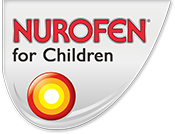What Causes a High Temperature in Children?

When we talk about having ’a temperature’, we think of it as the skin feeling more than simply ’hot’. If your child's body-temperature is above 37.8°C, then it is classified as a fever.
None of us like seeing our children in any distress, especially when they are as young as 3 or 4 years old. However, this temperature, and the associated fever, is a symptom of an illness and not an illness by itself.
When does a temperature/fever occur?
A temperature/fever can occur :
- A viral or bacterial infection is present in the body
- The child reacts to a medication or vaccination
- Your child is teething
This is not an exhaustive list.
What causes a temperature/fever in children?
So, although fever is a perfectly natural (and useful) reaction, it does mean that your child can feel a little unwell for a while as your body battles the infection. Their symptoms can include:
- Sweating
- Shivering and chattering teeth
- Restlessness, irritability, crying or lethargy
- Flushing/flushed skin
- Dizziness, sickness or vomiting
- Headache, aching muscles
- Generally feeling weak
If your child is experiencing a high temperature and some of the symptoms, there are a several things you can do to help them feel more comfortable. And together with a little extra , they should soon be on the mend.
What helps a feverish ?
It's a good idea to keep a thermometer handy at all times. If you find that your child is running a temperature, then there are lots of things you can do to help them. If, however, you find that your child's temperature is over 39°C for over two hours, you should seek medical help .
Simple, non-medicinal ways to help your child
- Get them to rest quietly and try to keep their room shaded and cool
- Encourage them to drink lots of water, feed them their formula (if appropriate) and give them doctor-approved fresh fruit juice to drink. It really helps to keep the body hydrated, even if they don't seem keen to drink
- Dress your child in light clothes and change the bedding to light, comfortable sheets
- Cool your child's forehead with a cold cloth (but not too wet, as this can make things worse)[1]
- Heavy meals are not a good idea. Feed your child some soup and salad, or a light rice broth
Medication for your child's fever
There are several different medications that may help if your child has fever. Certain medications are aimed at reducing the levels of a substance produced in our bodies, called prostaglandins. Lowering prostaglandin levels is important because:
- Prostaglandins are released in response to illness or injury and are associated with pain and inflammation
- Prostaglandins released in the brain can cause high body temperature[2]
Nurofen contains ibuprofen as its primary active ingredient. This offers a targeted action, because it reduces the production of prostaglandins – thus helping to reduce fever and bring pain relief.
Nurofen for Children:[3]*
- An effective and fast-working treatment for fever reduction and pain relief
- Nothing helps relieve your baby's fever faster or for longer than Nurofen for Children
- Relieves fever for up to eight hours and is clinically proven to last longer than paracetamol
- Nurofen for Children is suitable for youngsters from three months to 12 years old
You can find out even more about Nurofen for Children, together with lots of other helpful information for parents, by clicking here.
If your child's body is fighting an infection, it is not usually any cause for panic. Most fever in children is low grade. And although they may feel a little out of sorts for a while, they should get better quite soon - usually in a few days. But if you're in any doubt, always seek professional medical help.
* For babies and children from 3 months (weighing over 5kg). Contains ibuprofen. Always read the label.
Information sources consulted for this article:
http://www.nurofen.co.uk
http://www.nurofenfotchildren.co.uk
http://www.nhs.uk
http://www.ncbi.nlm.nih.gov/pubmedhealth/PMH0072551/
[1] http://www.nhs.uk/conditions/feverchildren/pages/introduction.aspx
[2] http://www.nhs.uk/Conditions/Painkillers-ibuprofen/Pages/Introduction.aspx?url=Pages/what-is-it.aspx
[3] http://www.nurofenforchildren.co.uk/products/products-introduction.php
